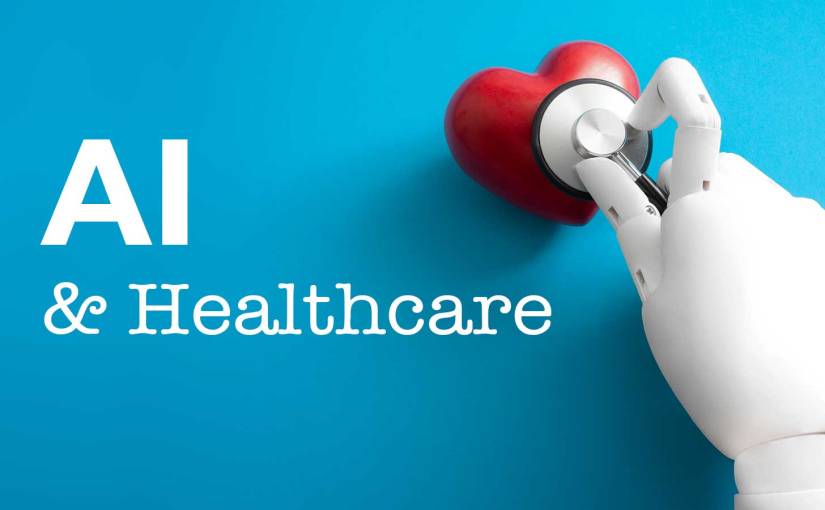Artificial intelligence in healthcare has come a long way. The use of computers has advanced significantly over the past few years. Today, sophisticated machines have been developed to perform human tasks like analyzing and interpreting data and assisting with problem-solving.
While machine learning (ML) has been widely used in many industries, the use and application of Artificial Intelligence (AI) in healthcare is still relatively new. It is only recently that we have seen AI move from the world of academics and research laboratories to hospitals.
AI is used to assess risks, make an informed diagnosis, and perform precise surgical procedures. Today, AI is employed in all types of medical specialties and services, including rural care, surgery prioritization, drug discovery, or survival analysis.
Artificial Intelligence in Healthcare — Significant Patient Benefits
Some of the key areas where AI has been of significant benefit in healthcare include:
Public Health and Big data
AI has excelled in analyzing Big data collected by healthcare organizations. AI allows rapid analysis of data. Data facilitates proactive risk assessment, narrows gaps in public health, and explains how behavior, genetics, and environmental factors affect population health.
By combining this information with diagnostic data, AI provides a holistic approach to patient treatment protocols.
One of the most significant benefits of AI in population studies is predicting at-risk populations based on genetic, behavioral, and social factors. The potential of AI in public health is enormous and is now being exploited by healthcare institutions to offer more personalized, data-driven care to patients and help improve outcomes.
Clinical Decision Making
In medicine, the differential diagnosis of any disorder is huge. A differential diagnosis takes time, labor, and money to get a definitive diagnosis. AI has simplified this process significantly.
Machine learning algorithms can reach a definitive diagnosis faster and with greater accuracy than conventional pathways. As a result, the use of AI in clinical diagnosis has also reduced diagnostic errors and allowed for faster treatment of serious medical disorders.
AI-enabled tools can comb through vast amounts of patient clinical data, which can go a long way in reaching a timely diagnosis and initiating early treatment.
AI-Assisted Surgery
Another area where AI has excelled is its use in robotic surgery. Advances in electronic technology have led to the development of robots that can now perform delicate surgery. The surgeon still controls the robot, but the robot can make micro dissections and enter delicate spaces that would be impossible with the human hand.
Robots have arms with precise movements and can perform complex operations on the brain and heart with perfect precision. This has been shown to lower the risk of blood loss and reduce complications. Also, all data from robotic surgeries can be saved and can facilitate learning and training for surgeons.
Better Healthcare Delivery and Accessibility
People who live in rural areas often have difficulty accessing specialists. Wait times can be pretty long, and people would have to travel to big cities. This not only causes inconvenience but can also be expensive for patients.
With AI, primary care physicians can evaluate patients with all types of medical disorders, whether they live in the city or a rural area. For example, AI robots can screen for eye diseases and send the images to a specialist who recommends a treatment. This is enormously beneficial for patients as the diagnosis is made rapidly, and their treatment can start immediately.
The use of AI in rural areas has allowed primary care physicians to effectively triage patients who need urgent treatment and those who can be managed effectively.
Overall, developing an AI digital infrastructure in rural areas can make it possible for people in these areas to get access to state-of-the-art medical diagnoses and faster delivery of care.
Artificial intelligence in healthcare Helps Mitigate Shortage of Specialists
There is no shortage of primary care physicians, but specialists are often unavailable outside the main cities and towns. In low-resource areas, AI has helped with diagnosis when interpreting imaging studies like chest x-rays, CT scans, PET scans, and MRIs.
A Primary Care Physician doesn’t have to wait for days or weeks to get a reading from a radiologist.
AI can interpret these images on the spot with great accuracy. For patients, this means no more waiting for a diagnosis, and it saves an enormous amount of time traveling back and forth to a radiologist.
Optimize Efficiency
Healthcare institutions are complex entities with thousands of patients, enormous amounts of patient data, and extensive interconnected processes and systems. This can often undermine efficiency, lead to long wait times for patients, and, in some cases, even lead to delays or missed appointments.
Data shows that AI can quickly shift through vast amounts of patient data within the electronic medical record and ensure that no patient is left behind or has a missed appointment. In addition, AI can prioritize services based on available resources and enhance revenue cycle performance by optimizing workflows.
Artificial intelligence in healthcare is immense both in and outside healthcare institutions
The potential for AI in healthcare is immense both in and outside healthcare institutions. Hospitals face constant financial challenges. AI can help make up for operational inefficiencies, rising costs, and a deficit of healthcare workers. Technologies like AI will help improve access and delivery of medicine and, at the same time, improve patient outcomes.
As AI continues to see an influx at all levels of healthcare, large amounts of healthcare data can be extracted and analyzed correctly. The data read by AI can provide greater insight into the causes of complex disorders. Clinicians can rely on the AI helps that identify conditions and benefit from guidance to determine effective treatment strategies.
Using Automated Machine Learning (AML) helps data analysis processes
The use of Automated Machine Learning (AML), in particular, goes a long way in helping automate the data analysis process. AML uses automatic algorithm selection, result visualization, and improved interpretation.
Data Analysis is more accurate in guiding decision-making
There are several machine learning processes and algorithms that can be applied to make healthcare data more useful to improve the decision-making process for clinicians. This can, in turn, improve diagnosis and treatment and impact patient survival and mortality.
Image Credit: Provided by the Author; Thank you!










